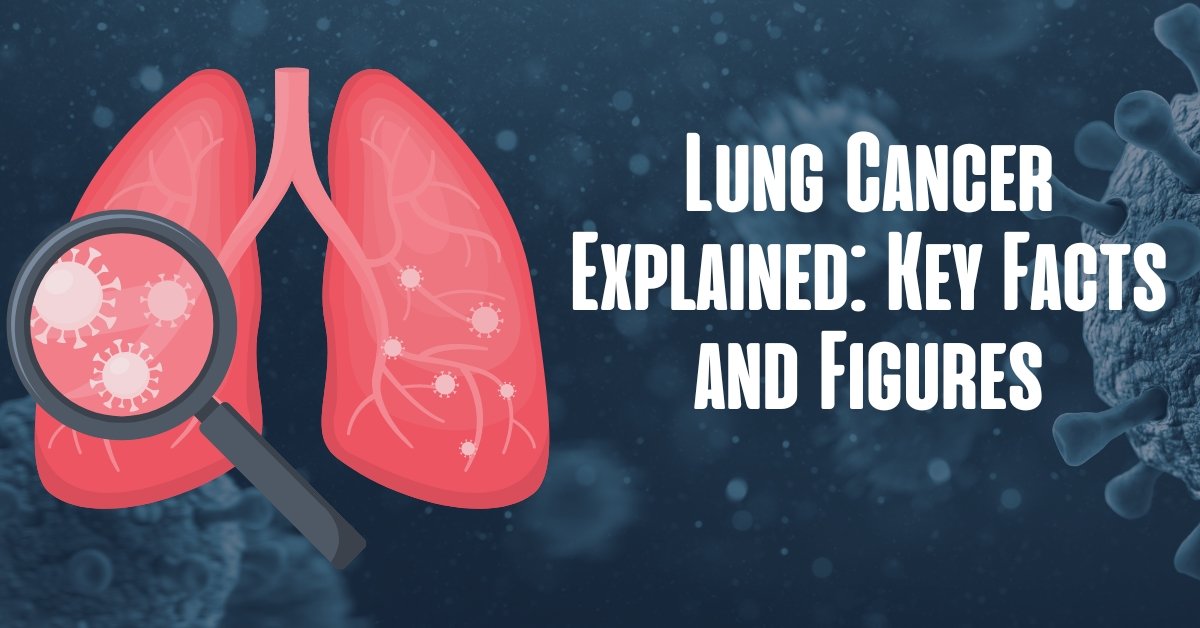
What is Lung Cancer ?
Lung cancer is one of the most prevalent and deadliest forms of cancer worldwide. Despite advancements in medical research and treatment, it continues to pose a significant health challenge. As an oncologist, it is my duty to provide comprehensive information about this disease, shedding light on its key facts and figures to enhance awareness and encourage early detection and prevention.
Understanding Lung Cancer
Lung cancer originates in the tissues of the lungs, typically in the cells lining the air passages. There are two primary types of lung cancer:
- Non-Small Cell Lung Cancer (NSCLC): This is the most common type, accounting for about 85% of all lung cancer cases. It includes subtypes such as adenocarcinoma, squamous cell carcinoma, and large cell carcinoma.
- Small Cell Lung Cancer (SCLC): Representing about 15% of lung cancer cases, this type is more aggressive and tends to spread quickly.
Key Facts and Figures
- Prevalence and Incidence:
- Lung cancer is the second most common cancer globally.
- It is the leading cause of cancer-related deaths worldwide, surpassing breast, prostate, and colorectal cancers combined.
- In 2020, there were approximately 2.2 million new cases and 1.8 million deaths due to lung cancer globally.
2. Lung Cancer – Risk Factors:
- Smoking: The most significant risk factor, accounting for about 85% of lung cancer cases. Both active smoking and secondhand smoke exposure increase the risk.
- Radon Gas: Exposure to radon, a naturally occurring radioactive gas, is the second leading cause of lung cancer.
- Asbestos: Occupational exposure to asbestos fibers is a known risk factor.
- Air Pollution: Prolonged exposure to polluted air can contribute to the development of lung cancer.
- Genetics: A family history of lung cancer can increase an individual’s risk.
Symptoms- Lung Cancer :
- Persistent cough
- Chest pain
- Shortness of breath
- Hoarseness
- Unintended weight loss
- Fatigue
Diagnosis-Lung Cancer :
- Lung cancer is often diagnosed through imaging tests such as X-rays and CT scans, followed by a biopsy to confirm the presence of cancer cells.
- Screening programs, particularly low-dose CT scans for high-risk individuals, have been shown to reduce lung cancer mortality by detecting the disease at an earlier, more treatable stage.
Treatment Options-Lung Cancer :
- Surgery: Often considered for early-stage NSCLC, involving the removal of the tumor and surrounding tissue.
- Radiation Therapy: Used to target and destroy cancer cells, either as a primary treatment or in combination with surgery or chemotherapy.
- Chemotherapy: Utilizes drugs to kill cancer cells or stop their growth, commonly used for both NSCLC and SCLC.
- Targeted Therapy: Involves drugs that specifically target genetic mutations or proteins that contribute to cancer growth.
- Immunotherapy: Boosts the body’s immune system to fight cancer cells, showing promise in treating advanced lung cancer.
Survival Rates:
- The overall 5-year survival rate for lung cancer is approximately 20%, but this varies significantly based on the stage at diagnosis.
- Early detection dramatically improves prognosis, with localized lung cancer having a 5-year survival rate of about 60%.
Lung cancer remains a formidable health challenge, but increased awareness, early detection, and advancements in treatment are making a significant impact. As we continue to educate and support patients and their families, we move closer to reducing the burden of this disease. If you or a loved one are at risk, I encourage you to speak with a healthcare provider about screening and prevention strategies. Together, we can work towards a future with fewer lung cancer diagnoses and more survivors.
Recommanded: Top 5 Cancer-Fighting Nutrients You Need in Your Diet
Why More Young Adults Are Developing Colorectal, Pancreatic & Other GI Cancers …
By Dr. Saadvik Raghuram Y – Leading Oncologist in Hyderabad World Cancer …
Why Are So Many Young People Getting Cancer Today? Across the world, …
January is Cervical Cancer Awareness Month in India, and this article explains …
Cancer-Related Fatigue (CRF) is one of the most common—and most underestimated—symptoms experienced …
Every year, Aplastic Anemia Awareness Month shines a spotlight on a rare …

